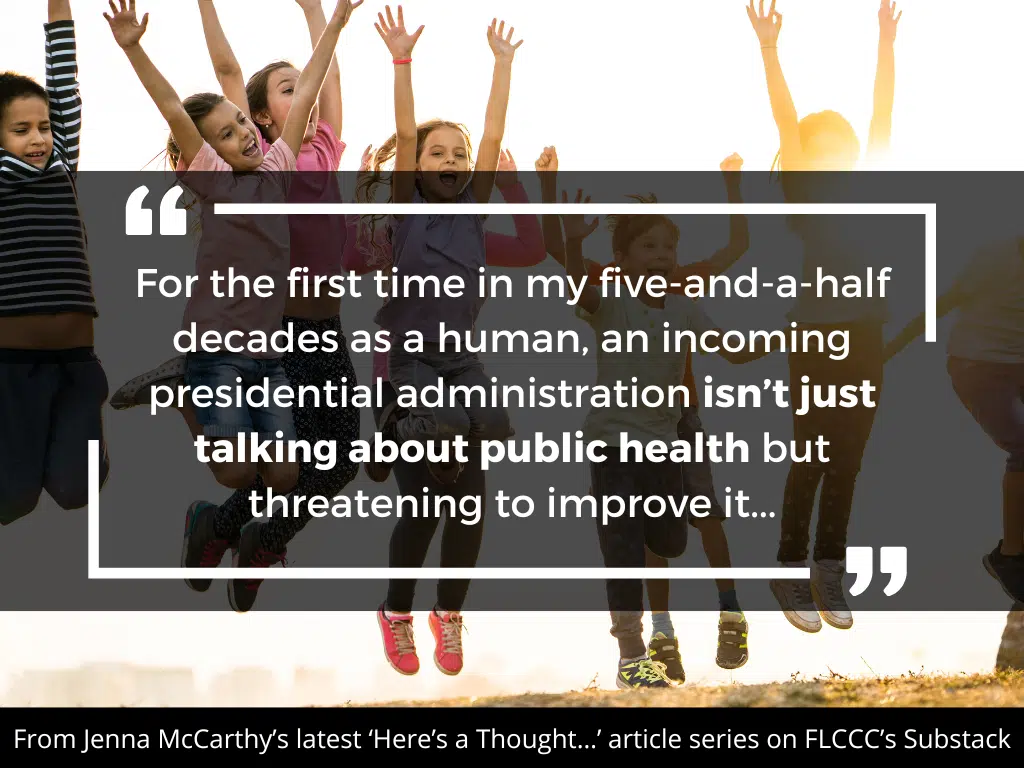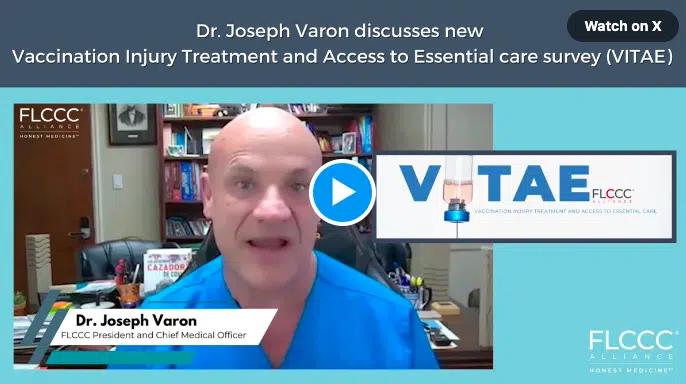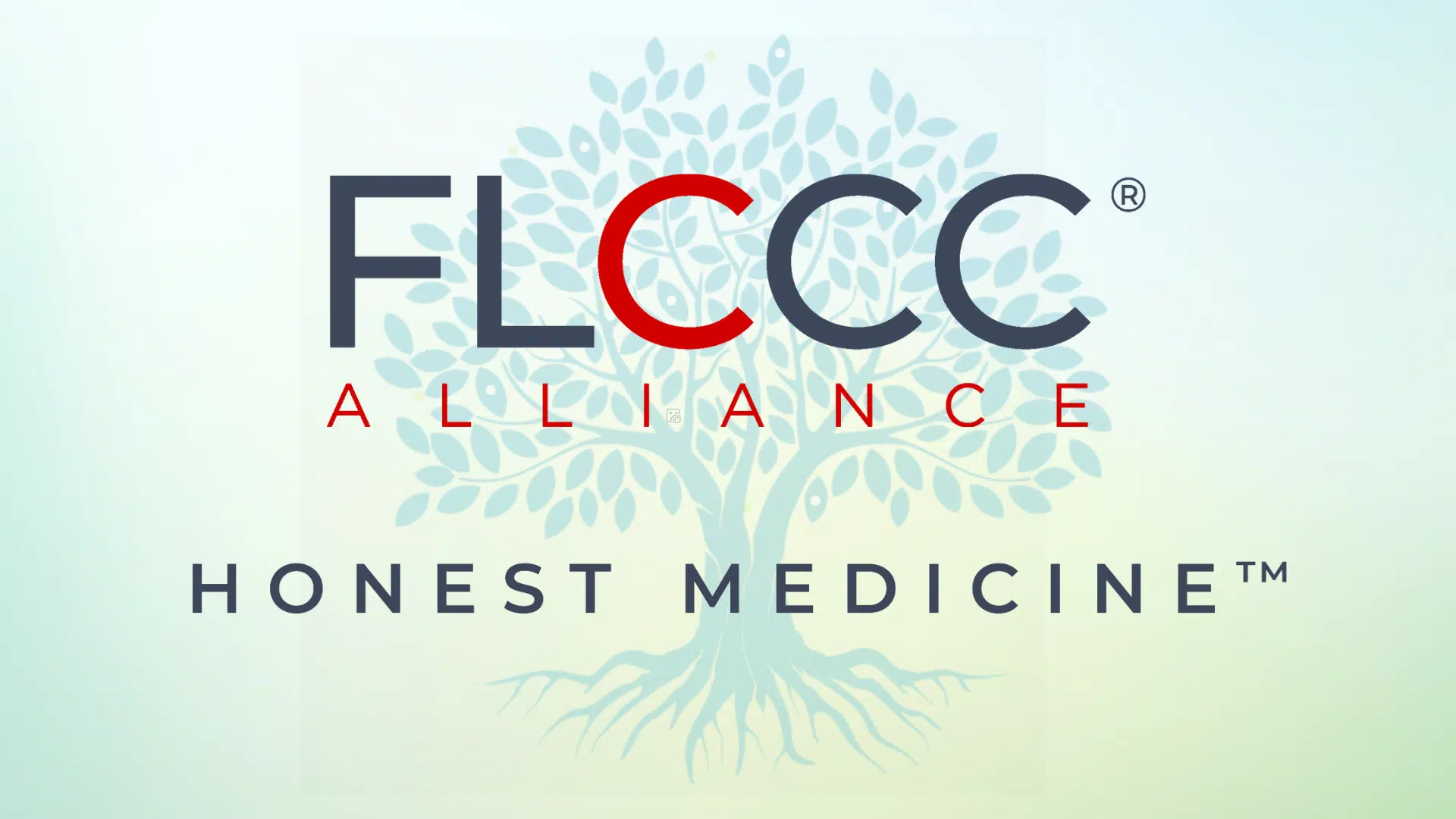Washington, D.C. – The source of the false complaint that triggered the nearly year-long investigation into research supporting the use of intravenous Vitamin C to treat medical sepsis has publicly expressed regret for questioning the integrity of the study’s lead author, Paul E. Marik, M.D., FCCM, FCCP, founding member of the Front Line COVID-19 Critical Care Alliance (FLCCC) and former Chief, Pulmonary and Critical Care Medicine at Eastern Virginia Medical School.
In March of 2022, Kyle Sheldrick, a physician and Ph.D. candidate in Australia, made a series of unsubstantiated allegations of fraud on social media and to the CHEST Journal, claiming that he was able to determine that study data had been fabricated by applying baseless statistical methods to the 2017 peer-reviewed study led by Dr. Marik titled “Hydrocortisone, Vitamin C, and Thiamine for the Treatment of Severe Sepsis and Septic Shock: A Retrospective Before-After Study.” After receiving the complaint, the CHEST Journal launched a thorough review of the study that lasted almost a year. In April of this year, Dr. Marik received a letter from the journal stating that the investigation found no methodological errors as cited by the allegations.
On 27 May, Dr. Sheldrick issued the following statement accepting the outcome of the investigation and acknowledging errors in his previous comments:
“On 22 March 2022, I posted a blog post called ‘This scattrd corn.’ This post was a copy of a complaint I filed with the journal CHEST identifying features of a study led by Paul Marik titled ‘Hydrocortisone, Vitamin C, and Thiamine for the Treatment of Severe Sepsis and Septic Shock’ published on 3 February 2017 in CHEST, identifying that I believed them to be signs of fraud, and linked to this on twitter.
Those complaints have since been formally rejected by the journal CHEST, which I consider to be the definitive conclusion to the matter. I realise that this letter was used to imply that Dr. Marik personally acted deceptively, and falsely reported study data, which was not my intention, and this caused him significant hurt and distress. I regret this hurt to Dr Marik. I will inform those who have reported on this complaint that it has been rejected by the journal.
Dr Marik has also indicated to me that some subsequent controlled studies have found some positive outcomes for vitamin C in Sepsis, and I accept this.
This statement is not an endorsement of the use of Vitamin C in sepsis.”
“It was highly unprofessional that Kyle went to such lengths to accuse my colleagues and me publicly of academic fraud,” said Paul E. Marik, M.D., FCCM, FCCP, founding member of the Front Line COVID-19 Critical Care Alliance (FLCCC) and former Chief, Pulmonary and Critical Care Medicine at Eastern Virginia Medical School. “I hope that as he gains more experience as a researcher, he will understand that there are protocols in place for questioning the results of research that prevent harming reputations by making baseless accusations in public.”
The journal’s response to Dr. Marik did cite two minor revisions that do not change the final outcome of the original published study, but simply make it clear that some of the patients selected for the control group were “nonconsecutive” given the nature of hospital logistics and that the 1.5 g every 6 h for 4 days was a “target” dose that might not have been reached in all patients due to clinical considerations.
In a previous statement, Dr. Marik said the following about the revisions from CHEST: “I welcome the two words changed by the journal as they make the description of our methodology clearer and have no impact on the research results. However, this whole process was unnecessary as it raised unneeded concern about a life-saving treatment that we know is effective and used worldwide. I hope patients were not deprived of this vital treatment because of these false allegations.”
The World Health Organization estimates that in 2017 there were 11 million sepsis deaths worldwide, which accounted for approximately 20% of all global deaths; half of these deaths occurred among children.
A link to Dr. Sheldrick’s statement can be found here: https://kylesheldrick.blogspot.com/2023/05/update.html
A copy of the CHEST Journal’s findings can be found here: https://covid19criticalcare.com/wp-content/uploads/2023/04/Marik-Vitamin-C_Editors-Note-and-Ltr-to-Marik-2023-04-03.pdf
The published study can be found here: https://pubmed.ncbi.nlm.nih.gov/27940189/
About the Front Line COVID-19 Critical Care Alliance
The FLCCC Alliance was organized in March 2020 by a group of highly published, world renowned critical care physicians and scholars with the academic support of allied physicians from around the world. FLCCC’s goal is to research and develop lifesaving protocols for the prevention and treatment of COVID-19 in all stages of illness including the I-RECOVER protocols for “Long COVID” and Post Vaccine Syndrome. For more information: www.FLCCC.net





